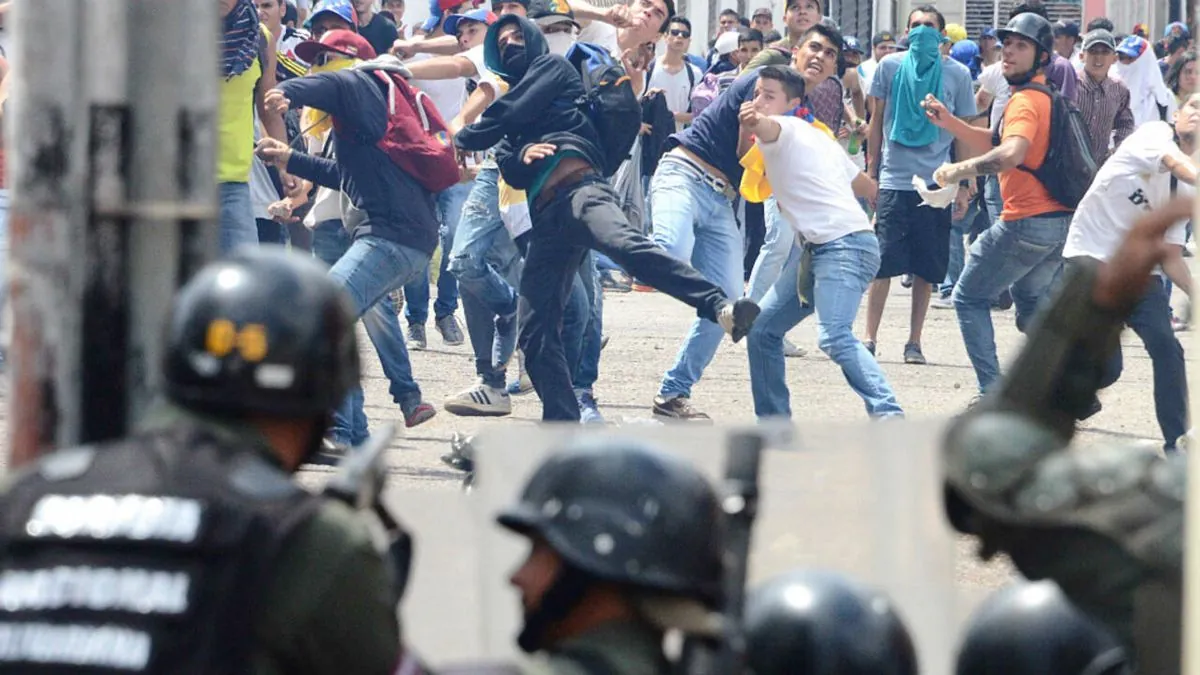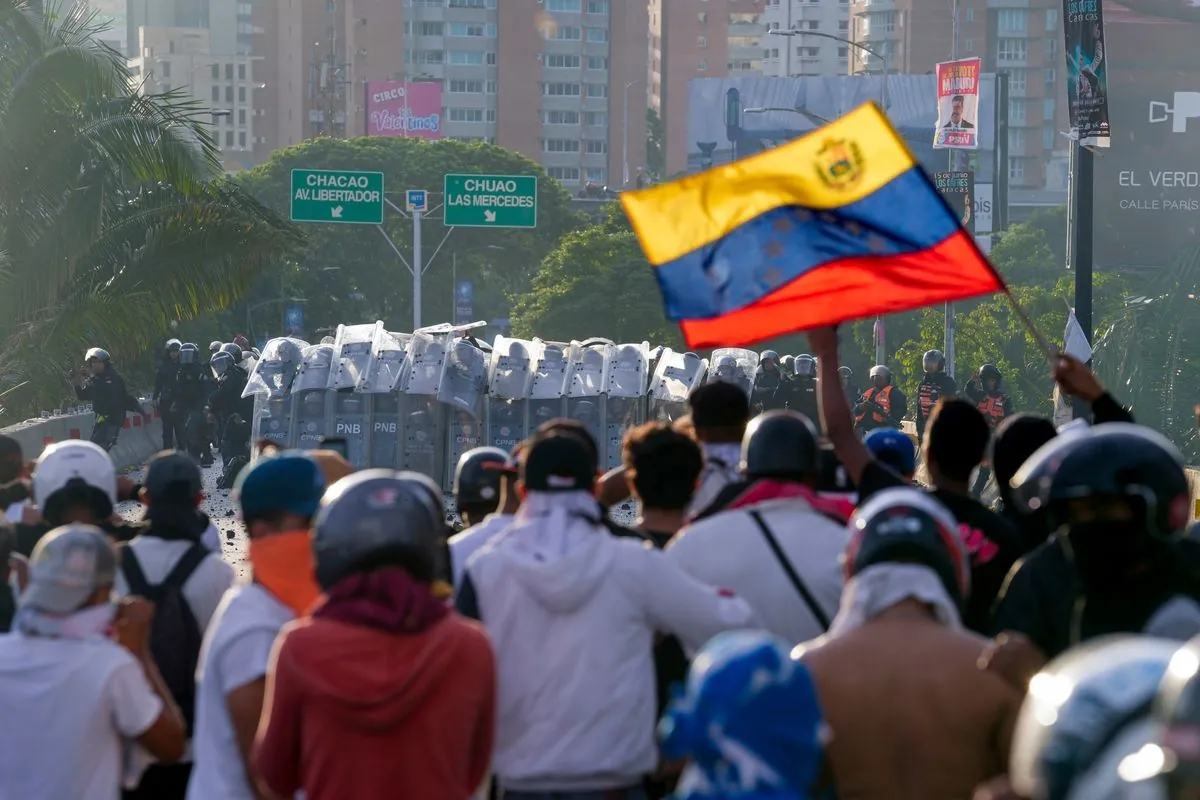Global Unrest: Venezuela's Election Chaos, Middle East Tensions, and Natural Disasters
Venezuela faces post-election turmoil, Israel strikes Hezbollah in Beirut, and India grapples with deadly landslides. Meanwhile, Russia flexes naval might and Olympic fencing sparks cheesy controversy.

Venezuela finds itself in a state of political upheaval following the disputed presidential election held on July 28, 2024. The aftermath has seen violent confrontations between anti-government demonstrators and security forces across the nation. Both incumbent President Nicolás Maduro and opposition candidate Edmundo González have declared victory, citing conflicting vote tallies.
The unrest has resulted in at least 11 fatalities, with reports of missing protesters and mass arrests. Freddy Superlano, a prominent opposition figure, is among the nearly 750 individuals detained. Maduro has accused the opposition of attempting a "coup," while international observers have raised concerns about the election's integrity.
The Organization of American States (OAS), founded in 1948 to promote cooperation among American states, has deemed the National Electoral Council's figures unreliable. Nine Latin American nations have called for an emergency OAS meeting, while Western powers demand a transparent recount.

"Our movement has obtained paper tallies from 73 percent of the country's polling stations showing that González had received 3.5 million more votes than Maduro."
Venezuela, a member of OPEC since 1960 and holder of the world's largest proven oil reserves, has been experiencing political turmoil since the Bolivarian Revolution began in 1999 under Hugo Chávez.
In the Middle East, tensions escalated as Israeli forces launched a strike in Beirut on July 30, reportedly targeting Fuad Shukr, a senior commander of Hezbollah. The militant group and political party, founded in 1985, has been engaged in ongoing conflicts with Israel. Shukr is also wanted by the FBI for alleged involvement in the 1983 Beirut barracks bombings, which claimed the lives of 241 U.S. and 58 French peacekeepers.
Concurrently, India's Kerala state experienced devastating landslides on July 30, resulting in at least 109 fatalities and over 170 injuries. The disaster primarily affected tea estate workers residing in vulnerable housing. Kerala, known for its near 100% literacy rate as of 2018 and economic reliance on Gulf expatriate remittances, has recorded the highest number of landslides in India from 2015 to 2022.
In a display of naval power, Russia conducted extensive military exercises on July 30 across the Arctic and Pacific oceans, as well as the Baltic and Caspian seas. With the world's largest fleet of icebreakers, Russia's navy ranks third globally in strength. These drills, involving 20,000 personnel and 300 vessels, underscore the increasing strategic importance of the Arctic Ocean and disputed areas like the South China Sea.
On a lighter note, a controversial Olympic fencing decision led to an unexpected promotional offer. Following the Italian Fencing Federation's complaint about a referee's call favoring Hong Kong's Cheung Ka Long over Italy's Filippo Macchi, Pizza Hut's Hong Kong and Macao branches announced free pineapple toppings for Hong Kong fans. This playful response references the divisive "Hawaiian pizza," which, despite its name, was invented in Canada in 1962.
As the world's largest democracy grapples with natural disasters, and global powers navigate complex geopolitical landscapes, even sporting events can spark international debates – and creative marketing strategies.


































